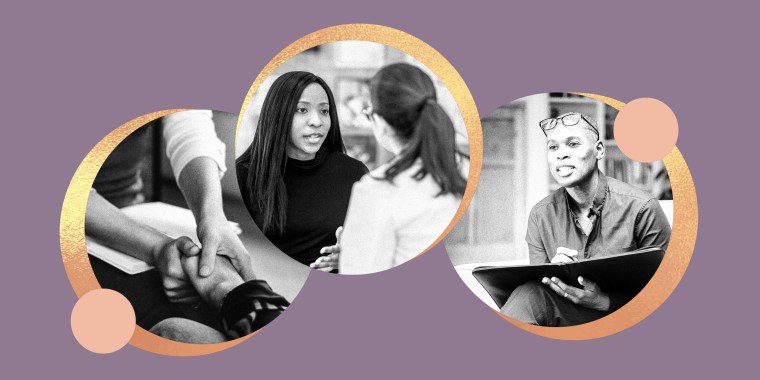Finding a therapist can be hard, and I can admit that even as a therapist myself. For some, there are issues finding someone in your area, for others, it’s difficult to find someone who accepts your insurance or fits within your budget. But when it comes to members of certain communities, specifically the Black community, finding a therapist who looks like you can feel like a significantly harder challenge.
Studies show that the psychology workforce is 85% white and only 2% Black. These numbers can be daunting and often deter Black people from seeking care due to the lack of Black providers. How does one navigate issues like racial trauma, which is mental and emotional distress related to experiencing racial discrimination, while seeking therapeutic services from someone who could possibly be perpetuating the systems of trauma in the first place?
For more like this, follow TMRW on Instagram at @tmrwxtoday.
There is a lot of distrust in the mental health field from Black people toward white clinicians, and this distrust is deeply tied to white supremacy. It dates back to 1932 during the Tuskegee Syphilis Study that brought harm to 399 Black men. This study proves that Black life has always been seen as less than, unworthy and nugatory, both in and out the health industry, and continues today when we are faced with issues like Black women dying at a higher rate than any other race during or after childbirth. Or when Black women are often underdiagnosed and overlooked when it comes to having eating disorders, or the criminalization and lack of mental health care offered to people of color involved in the criminal justice system.
There is already a lack of trust from Black people toward white clinicians, and often, Black folks feel they have to perform and present themselves as the model minority so that they are not viewed through the lens of racist stereotypes. Not only that, but the possibility of being misdiagnosed or having CPS called on you and having your children removed from your care is another concern that Black people have to reconcile with. When the care you seek for your mental well-being can actually result in more harm and damage to your psyche, it is no wonder why many Black people have a hard time seeking and asking for help from institutions or even privately owned mental health practices.
After facing years of historical trauma, Black people are beginning to unlearn the negative and harmful stereotypes that often keep them out of the therapy room. Some of these views are that only white people deal with mental health issues, or that what happens in the family stays in the family, or even the belief that pastoral counseling is the only way to seek healing. As we learn to decolonize our minds and our mental health practices, Black people are seeking safe spaces to heal and it can be difficult when all you can find are white providers.
If you can’t find a Black therapist, all hope isn’t loss. A culturally competent therapist might also be able to meet your needs, but before signing up, you may want to interview them and assess their level of skill when it comes to working with Black clients.
Some questions to ask can be:
- What is your experience working with Black clients?
- What is your experience when it comes to treating x issues?
- What are your views on racism and white supremacy and their impact on someone's mental health?
- What is your treatment approach when it comes to tackling x issues?
- What professionals of color do you learn and gain insight from?
Luckily, when there is a shortage, Black people find ways to bridge the gaps between service and care. Therapy for Black Girls, for example, is a Black therapist directory created by licensed psychologist Dr. Joy Harden Bradford. Black Female Therapists is another Black therapist directory. Both of these groups host a podcast and offer resources to the Black community. Other Black wellness hubs include Black Girl In Om, Ethel's Club, BEAM and Therapy for Black Men.
Always remember that if the shoe doesn’t fit, don’t force it. If you feel like the therapist you're interviewing isn't a great match, there's no need to move forward with them. And if you've already signed up and realize a few sessions in that it’s not working, you can terminate therapy at any time.
Black mental health matters. It always has, and it always will.


